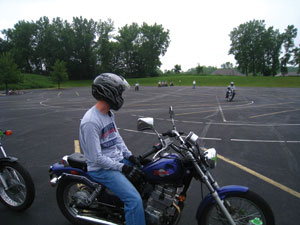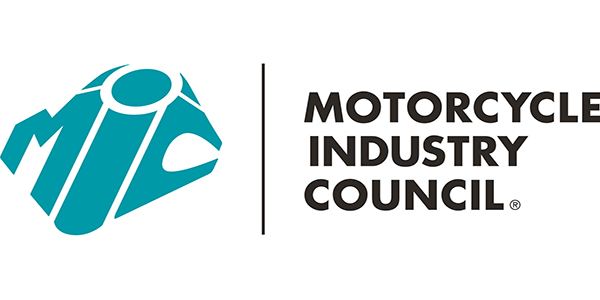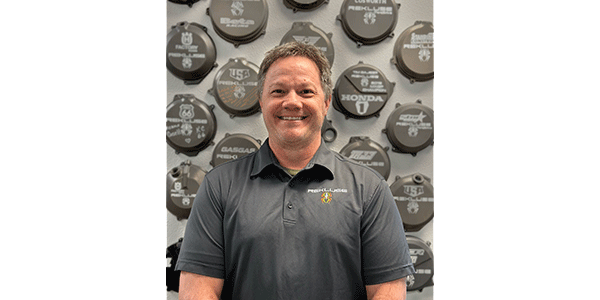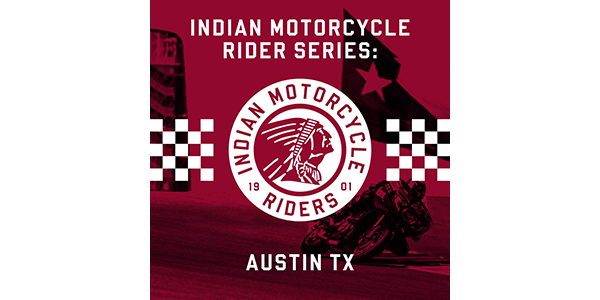 Eyes straight-ahead, knees in, both hands covering the controls, arms slightly bent — I kick it into gear, ease the clutch out and I’m rolling. I could be winding my way through quaint New England towns or maneuvering through rush hour traffic in L.A., but I’m not. Instead, I’m weaving around some traffic cones and doing braking exercises in a rather nondescript corporate campus parking lot following 12 other individuals who are also just learning how to ride a motorcycle.
Eyes straight-ahead, knees in, both hands covering the controls, arms slightly bent — I kick it into gear, ease the clutch out and I’m rolling. I could be winding my way through quaint New England towns or maneuvering through rush hour traffic in L.A., but I’m not. Instead, I’m weaving around some traffic cones and doing braking exercises in a rather nondescript corporate campus parking lot following 12 other individuals who are also just learning how to ride a motorcycle.
Every rider has his or her own opinions about motorcycle safety — and a different approach to it as well. One of the best ways for new riders to learn proper riding techniques and develop good safety habits is to enroll in a Motorcycle Safety Foundation (MSF) course at least once — and, as a caring powersports dealer, you will likely benefit from promoting motorcycle safety through various riding and educational courses. Not only will you be able to help your customers learn the kind of skills that could save their life, but you will also have an opportunity to outfit these new riders with the latest safety gear and maybe more.
Believe it or not, riding on the street can be dangerous, especially if you are inexperienced and untrained. In 2006, there were over 5,000 fatal motorcycle accidents on our nation’s roads. About two-thirds of those accidents involved a car or truck — and we know all too well who usually wins those match-ups. Statistics show that motorcycle fatalities dipped about 16 percent last year, reversing a long, upward trend of fatalities from previous years. The Governors Highway Association recently released a report that explained why this number is going down. The report concludes the downward trend is partially due to fewer new riders and increased attention from states on motorcycle safety and rider training.
The Basic Rider
I’ve been riding dirt bikes since I was a kid but never had a street bike until a couple of years ago. A neighbor wanted to clear out his garage and gave me an old GS550 that didn’t run (I’ll take almost anything that’s free). I will admit there was part of me that was hesitant to ride on the street. And all of the horror stories one hears about motorcycle accident rates as well as family members begging me to do anything else — climb mountains without a rope, skydive, you name it — had reduced my desire to ride for a while. However, my desire returned after a few colleagues had taken MSF courses and highly recommended that I take one as well. The course was three days in early June, and without hesitation, I can say it was some of the best training I‘ve ever had.
My instructors in the MSF Basic RiderCourse put on by Motorcycle Ohio were top notch. Not only were they seasoned motorcyclists themselves, but they also put students at ease (not easy) by giving clear explanations and demonstrations of the exercises as well as giving good one-on-one-time with each student no matter what their skill level was. Both Rider Coaches carried notebooks that detailed precise instructions about how to teach each exercise. They explained the exercises very clearly and why it was important to learn skills like using both front and rear brakes, how to ride over obstacles, proper turning and stopping techniques as well as general motorcycle maintenance tips. Before each exercise, one of the instructors would demonstrate how it was done using a student’s bike.
MSF has set standards of excellence in motorcycle rider education and training for over 35 years and campaigns for the safety of the motorcyclist in many ways. The Foundation develops and maintains high-quality, research-based rider education and training curriculum, establishes national certification standards, provides technical assistance for training and licensing programs, actively participates in government relations, research and public awareness, and works with powerful motorcycling and public organizations toward improving and enhancing the safety and enjoyment of motorcycling.
One of the most popular courses MSF offers is the Basic RiderCourse, which is geared toward new riders as an entry-level, learn-to-ride class that consists of about 15 hours of formal classroom activities and on-cycle riding exercises conducted over two or three days. About five hours are devoted to learning activities in the classroom, and around 10 hours of hands-on practice are included. Training motorcycles are provided for the basic course, and completion of the course will, in many states, waive the motorcycle license skill test and give students a nice insurance discount.
The Basic RiderCourse is taught at a pace that is relatively simple for most novice riders to complete all of the exercises and pass the test at the end. Instructors, or “Rider Coaches,” help riders learn the skills they need to the best of their ability. However, some riders just don’t have ability to perform at a safe level and may be asked to leave if instructors feel it is unsafe. In fact, during my course, there was one student who had never even driven a manual transmission car, let alone a motorcycle, and she had a great deal of difficulty performing at the same level as the rest of the class. Most of my classmates had ridden bikes before or had a bike already. It is necessary to have a temporary permit before you begin the riding part of the class, so I had to rush out and study the day before.
My classmates had many different reasons why they decided to take the course, but most said that learning to be a safe rider was the deciding factor. In some ways, the final was easier than expected. “I don’t consider myself a good rider, but the fact that I passed is a bit shocking to me. We had excellent instructors, but I know my abilities,” said Sam L., one of my classmates.
Sam said he had a motorcycle for about 4 months but had a difficult time with it. “It was a very old bike that had a leaky head gasket. I crashed it the first day I sat on it, which made fixing the bike a mission impossible.”
One of the best things Sam said he learned was how to feel at ease on a bike. “I think the most important lesson I learned was how to get comfortable on a bike faster. Even the idea of power walking is great. When I get a bike I will retake this course or the advanced course,” says Sam. “Personally, I think you have to take such a course every other year or so, just to make sure that you have your basics. It was an overall great class, and kudos to the state of Ohio.”
The Experienced Rider
This MSF course provides experienced riders the chance to continue their motorcycle education and training. The Experienced RiderCourse (ERC) consists of three separate one-day courses.
The Skills Practice course is for riders who have passed the BRC or who already have basic riding skills. The Skills Plus course is for riders who are already licensed and ride often. In this course, students are allowed to have a passenger participate. The License Waiver course is for riders with permits who don’t have a state motorcycle license or endorsement. Some states use this as a license waiver course for experienced riders.
The Motorcycle Safety Foundation also offers several programs that any dealer can institute at their location. Robert Gladden, MSF general manager, says that front-of-store staff need to be familiar with what safety programs are available and where the range locations are to help pass the message to customers.
“It’s been my experience that salesman and parts people are sort of de facto spokespeople for the dealership because they are the ones interacting with customers the most. For these people not to have knowledge about safety programs is almost tragic.”
He also says some dealers offer a discount to recent grads by keying in a student’s grad date into the management system and honoring a discount for first couple of purchases in the store.
Gladden points out that dealers may also use MSF materials for open houses such as their Ride Straight program, which includes impaired vision goggles for customers to see what alcohol does to their vision and judgement. The Seasoned Rider Aging Awareness module and Group Riding module is another way dealers can get involved with rider safety. These are interactive courses that can be run by a dealer or riding club.
Dealers who want to become more involved in motorcycle safety may do so by contacting the MSF. Your first step in starting a training program of your own is to contact your state coordinator for rider education in your state. Contact information for State Coordinators can be found on the MSF website at
www.msf-usa.org.













